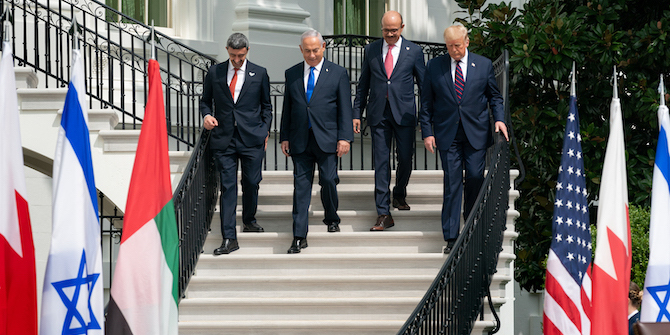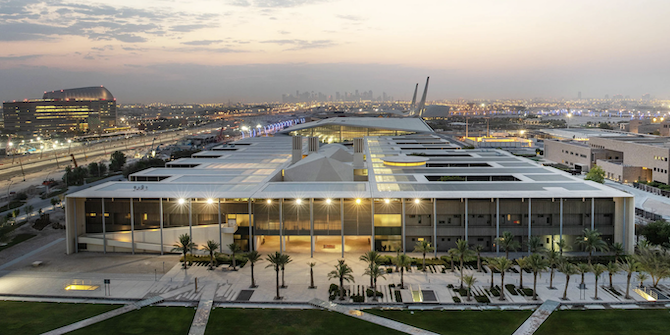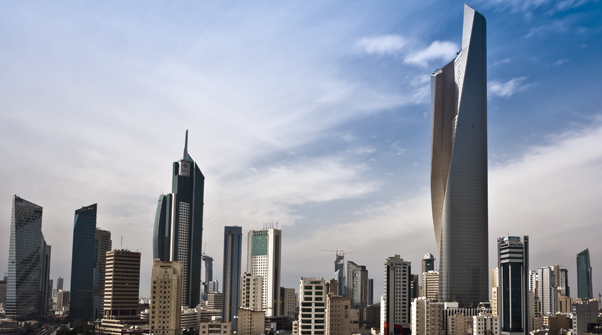by Suliman Al-Atiqi
This memo was presented at a workshop organised by the LSE Middle East Centre on ‘Mapping GCC Foreign Policy: Resources, Recipients and Regional Effects‘ on 7 October 2015.
Before the Arab uprisings, Saudi Arabia pursued an active policy of diplomatic mediation, coupled by a substantial $500 million foreign aid package as part of the Reform and Development Program presented by the Palestinian Authority (PA). Considerable effort was made by the late King Abdullah towards reconciling Fatah and Hamas, which ultimately led to the Mecca agreement signed by the two parties in February of 2007. Saudi branding even made its way into the official text of the agreement: “Based on the generous initiative announced by Saudi King Abdullah Ben Abdul Aziz and under the sponsorship of his majesty…”
While the deal elevated Saudi diplomatic prestige, when the agreement proceeded to unravel the king felt that he had been failed by Hamas – a personal position which became a state position towards the group. Hamas’ cultivation of ties with Iran (perhaps as a result of Saudi withdrawal) increased the trust deficit. With the advent of the Arab uprisings, anti-Islamist policies (particularly against the Muslim Brotherhood and its affiliates), and exigencies elsewhere, Saudi policy on Palestine stagnated. As the king aged, Saudi Arabia maintained a conservative policy with no renewed initiatives.
But with the accession of King Salman, a reshuffling of posts at the highest level and the inclusion of younger leadership, the former king’s very personal position on Palestine and Hamas could no longer weigh down the Saudi bureaucracy, and they have attempted a more proactive foreign policy. The Hamas leadership was invited to the kingdom for substantive talks, paving the way for renewed relations.
Realigning Hamas to the Saudi orbit supports Saudi Arabia’s twin goals of curbing Iranian influence and undermining ISIS by a) assisting Hamas in its struggle against ISIS offshoots in the Gaza strip and b) by preventing Iran’s access to moral victories in the Palestine cause through support of Hamas.
Although Qatar was close to Hamas at the time of King Abdullah’s bitter relations with the group, on the whole this was seen as positive – far preferable to Iran gaining more influence. For Saudis, taking Palestine out of the Iranian camp was a general success for the GCC. Prior to the Arab uprising, Qatar’s affinity with Hamas was seen as adverse to the Saudi 2002 peace initiative (reaffirmed in 2007) – radicalising people against it. But after the Arab uprisings, it spelled one less Iranian foothold in the affairs of Arab countries.
ISIS is now a competitor and challenge to Saudi Arabia on an ideational level and perhaps an even worse threat than Iran, given that they are competing for the same Sunni constituency and ISIS has such broad social support. Their ability to occupy territory through force and exert strict laws on personal freedoms competes with the Wahhabi style of ruling. Saudi Arabia is thus more militant given its competition with ISIS, with their military intervention in Yemen, earning Islamist plaudits. Saudi Arabia’s desire to curb ISIS’ influence may thus be another factor in future support of Hamas as a counter to ISIS.
Qatar
Qatar’s policy towards Palestine is based around efforts to establish itself on the international stage as a mediator. In the 1990s it notably and infamously allowed Israel to open a trade office in Doha. This it explained as an attempt to help foster the peace process, as per the Oslo agreement. It claimed that Israel was skeptical of a prospective Arab peace agreement; hence the move was a goodwill gesture to assuage such concerns and give Israel incentives to follow through on the peace process. Rabin’s assassination put an end to the effort.
Qatar emphasises humanitarian concerns in its approach to Palestine. Its aid policy focuses on Gaza’s infrastructure, with them recently committing to a $400 million project. The focus on building Palestinian infrastructure is geared towards exerting psychological pressure on Israel by building facts on the ground – Palestine and Palestinians are here to stay. Qatar’s unique relations with Hamas give it a practical advantage – allowing for open channels facilitating sending support to Gaza.
Similarly, Qatar highlights the humanitarian angle when explaining its hosting of the Hamas leadership in Doha. Despite hosting the Hamas leadership, Qatar claims full adherence to the principle of shariʿya– the legitimate authority understood here as the PA, the sole legitimate executive body created by the Oslo process governing the occupied territories. They claim to be politically supportive of the PA, while their support for Hamas is under a humanitarian rubric.
Even when Hamas severed relations with Fatah, amid Qatari overtures to the group, Mahmoud Abbas visited Doha on four occasions. Despite Qatari claims that it does not support the political objectives of Hamas, the PA’s critique is that it nevertheless legitimises Hamas, particularly when the Emir’s visit to Gaza under this humanitarian guise was interpreted by Hamas as a moral victory. The PA argued that if Qatar is with the sharʿiya then the emir should visit Ramallah before Gaza. Qatar’s response was that the Emir did not want to get approval from Israel (which would have been necessary for a visit to the West Bank) and the point of visiting Gaza was breaking the siege – a symbolic show of resistance. They said that their intention was not to undermine the PA’s legitimacy but to maintain a credible diplomatic corridor for mediation efforts. Indeed with Qatar’s support the two sides signed two agreements: in Doha (February 2012) and in Cairo in May of that year. Qatar also felt that Hamas being rejected by Arab countries would push it towards Iran.
Despite Qatar’s unique relations with Hamas, the PA still deems Qatar as one of the most committed supporters of the Palestinian cause and even requested in 2006 that it chair the follow up committee set up for the Peace process. During that time it was also a UNSC member, which made it more able to advance the Palestinian agenda.
Qatar’s ideological affiliation with the Muslim brotherhood also gives it an advantage vis-à-vis Hamas. Qatar’s influence on Palestinian reconciliation efforts was particularly high during the Morsi government in Egypt. A Qatari-Egyptian initiative was able to make strides towards reconciling the two parties as there was less pressure on Ramallah to cooperate. Qatar also supported the idea of the reconciliation talks in Cairo – a first. The PA is very reticent about upsetting any Arab country, especially one as powerful as Egypt. Hence after the coup which saw Sisi come to power, pushing for reconciliation with Hamas amid an MB crack down at the expense of good relations with Egypt would have been too costly for Fatah. So after the Egyptian coup the pressure for reconciliation was reversed. Put differently, under the Morsi government there were fewer excuses for Fatah not to make an effort towards a unity agreement.
Conclusion: The Flexibility of the GCC
Flexibility in the GCC model allows it to respond to threats without unanimous consensus. Member states meet under the banner of the GCC, but if there are differences they do not constitute an obstacle to action. In the case of Yemen, Oman rejected the Saudi initiative but conceded that it cannot stop other GCC members from doing so multilaterally – and not as a GCC-led initiative. Flexibility has also been particularly useful in times of crisis. When Saudi Arabia, Bahrain, and the UAE withdrew their ambassadors from Qatar, Kuwait’s neutrality allowed it to effectively mediate a way out. Oman’s neutrality with Iran has allowed it to mediate differences with the Gulf States in the past and will likely prove to be important in the future as tensions continue – as has also been the case with Omani mediation efforts between senior Houthi representatives and US officials to resolve the deadlock over the conflict.
This flexibility is also emblematic of policies towards Palestine, but what is interesting is the presentation of success stories at the secretariat level. While separate countries act independently – and differently – overall success tends to be credited to the GCC as a whole. The GCC as a geographical region and the GCC as an organisation become interchangeable.
Suliman Al-Atiqi is a doctoral candidate at St Antony’s College, University of Oxford, where his research focuses on the Gulf Arab states in international relations.
Other memos presented at the workshop
- Pejman Abdolmohammadi, ‘GCC-Iranian Relations and Changes in Iranian Foreign Policy towards its Neighbours’
- Will Bartlett, James Ker-Lindsay, Kristian Alexander and Tena Prelec, ‘UAE Policies towards the Western Balkans: Investment Motives and Impacts’
- Karen Young, ‘The New Politics of Gulf Arab State Foreign Aid and Investment: Evidence from the UAE Intervention in Egypt’
- Courtney Freer, ‘Ikhwan Ascendant? Assessing the Influence of Domestic Islamist Sentiment on Qatari Foreign Policy’
- Christian Henderson, ‘The UAE’s Nexus State: Logistics, Transport and Foreign Policy’







